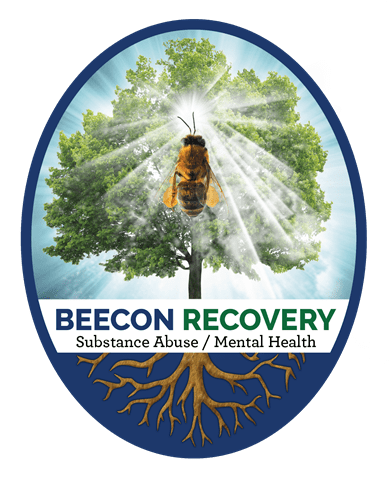Importance of Nutrition for Mental Health and Sobriety
Understanding the Link Between Nutrition and Mental Health
At Beecon Recovery, we recognize the profound connection between nutrition and mental health. The food we consume plays a critical role in our brain chemistry, mood regulation, and overall mental wellbeing. When we nourish our bodies with essential nutrients, we can significantly improve our mental health outcomes, particularly in the context of recovery from substance use disorders.
Research suggests that specific nutrients can affect neurotransmitter functions in the brain, helping to alleviate symptoms of depression and anxiety. Below is a table illustrating key nutrients and their functions relevant to mental health.
| Nutrient | Function |
|---|---|
| Omega-3 Fatty Acids | Supports brain function and mood stabilization |
| Antioxidants | Protects brain from oxidative stress |
| Amino Acids | Building blocks for neurotransmitters |
By understanding this link, we can better support our mental health through dietary choices that enhance our wellbeing.
Impact of Nutrition on Recovery from Substance Use Disorders
Nutrition is vital in the journey of recovery from substance use disorders. Many individuals in recovery experience nutritional deficiencies due to past substance use. These deficiencies can hinder the recovery process, making it essential to address them through proper nutrition.
During recovery, balanced diets can aid in repairing the body and brain, contributing to better emotional health and reduced cravings. A table below outlines how various nutrients can benefit those in recovery.
| Nutrient | Benefits for Recovery |
|---|---|
| Omega-3 Fatty Acids | May reduce relapse risk and improve mood |
| Protein | Supports neurotransmitter production |
| Folate and B Vitamins | Aids in mood regulation and reduces anxiety |
At Beecon Recovery, we incorporate nutritional strategies into our treatment plans to enhance the recovery experience. Our approach considers the role of nutrition in supporting mental health and sobriety, ensuring that our clients receive comprehensive care that addresses both physical and emotional needs. For additional insights, we invite you to explore articles such as amino acid therapy: rebuilding brain chemistry after addiction and combining traditional and holistic therapies for comprehensive recovery.
Nutrients Essential for Mental Wellness
To support our mental health and aid in sobriety, it’s crucial to understand the nutrients that play a vital role in our overall well-being. Three essential nutrient categories include omega-3 fatty acids, antioxidants, and protein with amino acids.
Omega-3 Fatty Acids
Omega-3 fatty acids are essential fats that our bodies cannot produce independently. They are paramount for brain function and mental health. Studies have shown that omega-3s can help reduce symptoms of depression and anxiety.
Sources of omega-3s include:
| Food Source | Omega-3 Content (g per serving) |
|---|---|
| Salmon (3.5 oz) | 3.1 |
| Chia Seeds (1 oz) | 5.1 |
| Walnuts (1 oz) | 2.5 |
| Flaxseeds (1 oz) | 6.4 |
Incorporating omega-3-rich foods into our diet is an effective way to support our mental wellness. For additional strategies on how nutrition supports recovery, we can explore our article on amino acid therapy: rebuilding brain chemistry after addiction.
Antioxidants
Antioxidants are compounds that help neutralize harmful free radicals in our body, providing protection against oxidative stress, which can contribute to mental health challenges. A diet rich in antioxidants can improve our brain health and enhance mood.
Common sources of antioxidants include:
| Food Source | Antioxidant Content (ORAC units per 100g) |
|---|---|
| Blueberries | 4,669 |
| Dark Chocolate | 15,000 |
| Spinach | 1,515 |
| Artichokes | 9,416 |
Incorporating a variety of fruits and vegetables into our daily meals ensures we receive a diverse range of antioxidants. For further reading on holistic approaches to sobriety, we can refer to our content on combining traditional and holistic therapies for comprehensive recovery.
Protein and Amino Acids
Protein is a crucial macronutrient that provides the building blocks for neurotransmitters, which are vital for communication in the brain. Amino acids, the components of protein, are particularly important for mood regulation.
Sources of protein include:
| Food Source | Protein Content (g per serving) |
|---|---|
| Chicken Breast (3.5 oz) | 32 |
| Eggs (1 large) | 6 |
| Lentils (1 cup cooked) | 18 |
| Greek Yogurt (1 cup) | 20 |
Eating protein-rich foods can help stabilize blood sugar levels and mood, supporting our path to sobriety. For those interested in personalized nutrition plans, we recommend exploring understanding epigenetic testing in personalized addiction treatment.
By focusing on these essential nutrients—omega-3 fatty acids, antioxidants, and protein—we can effectively support our mental wellness and sobriety journey. Incorporating these components into our diet promotes better mental health and enhances recovery strategies.
Balancing Diet for Mental Health and Sobriety
A balanced diet plays a vital role in mental health and maintaining sobriety. We understand that choosing the right foods can significantly impact our recovery journey. Below, we explore the importance of whole foods versus processed foods, staying hydrated, and effective meal planning.
Whole Foods vs. Processed Foods
Whole foods are often more beneficial for our mental wellness compared to processed options. Highly processed foods can worsen mood and lead to energy crashes. Focusing on whole, nutrient-dense foods can enhance our mental clarity and emotional stability. Below is a comparison of whole foods and processed foods:
| Food Type | Benefits | Drawbacks |
|---|---|---|
| Whole Foods | High in nutrients, rich in fiber, promote satiety | May require more preparation time |
| Processed Foods | Convenient, readily available | Often high in sugar, unhealthy fats, and preservatives |
Importance of Hydration
Hydration is essential for optimal brain function and emotional regulation. Water helps transport nutrients to our brain and removes toxins that can hinder our mental health. We should aim for adequate fluid intake each day. Below is a guideline for daily hydration:
| Activity Level | Daily Fluid Intake Recommendation |
|---|---|
| Sedentary | 2.5 liters (about 10 cups) |
| Moderately Active | 3.0 liters (about 12-13 cups) |
| Active | 3.5-4.0 liters (about 14-16 cups) |
In addition to water, we can incorporate hydrating foods like fruits and vegetables into our meals.
Meal Planning for a Healthy Mind and Body
Effective meal planning is crucial to ensure we consume a balanced diet that supports our mental health and sobriety. Preparing meals in advance allows us to focus on nutritional choices that contribute to our overall wellbeing.
We can use the following tips to create a successful meal plan:
- Incorporate a Variety of Foods: Ensure meals include a mix of proteins, whole grains, healthy fats, fruits, and vegetables.
- Designate Prep Days: Set aside time each week to prepare and store meals for convenience.
- Listen to Our Bodies: Pay attention to hunger cues and emotional triggers when planning meals.
For more strategies on nutritional support in recovery, check out our article on amino acid therapy: rebuilding brain chemistry after addiction.
By focusing on the role of nutrition in supporting mental health and sobriety, we can create a foundation for better recovery outcomes. This balance enables us to nurture both our mental and physical health effectively.
The Gut-Brain Connection
Understanding the gut-brain connection is essential for recognizing how our digestive health can influence our mental state. Research highlights that a healthy gut plays a crucial role in maintaining mental wellness and supporting sobriety.
Role of Gut Health in Mental Wellbeing
The gut houses trillions of microorganisms that contribute to our overall health. These gut bacteria, or the gut microbiota, interact with our brain through various pathways, influencing neurotransmitter production and hormone regulation. An imbalance in gut health can lead to conditions such as anxiety and depression, which can significantly impact recovery from substance use disorders.
| Aspect | Impact on Mental Wellbeing |
|---|---|
| Gut Microbiota Diversity | Higher diversity is linked to better mental health. |
| Inflammation | An inflamed gut can contribute to mood disorders. |
| Nutrient Absorption | A healthy gut aids in the absorption of vital nutrients for brain health. |
Probiotics and Their Influence on Mental Health
Probiotics, often found in fermented foods or as supplements, promote a balanced gut microbiome. Studies suggest that these beneficial bacteria can positively affect mood and cognitive function by enhancing the production of neurotransmitters like serotonin. By incorporating probiotics into our diet, we support our mental health, making it easier to maintain sobriety.
| Probiotic Sources | Potential Mental Health Benefits |
|---|---|
| Yogurt | May help reduce symptoms of anxiety and depression. |
| Sauerkraut | Supports gut health and overall mood. |
| Kefir | Aids in the production of serotonin and other neurotransmitters. |
Foods That Support Gut Health
A balanced diet rich in fiber, nutrients, and antioxidants can foster a healthy gut. Foods that promote gut health include:
- Fruits and Vegetables: High in fiber and antioxidants, aiding digestion.
- Whole Grains: Provide prebiotics that feed beneficial gut bacteria.
- Lean Proteins: Support neurotransmitter production and overall brain health.
Incorporating these foods into our daily meals can enhance our gut health, contributing positively to our mental wellbeing and helping us on our path to recovery. For more insights on the supportive role of nutrients, explore our article on amino acid therapy: rebuilding brain chemistry after addiction.
By understanding the role of nutrition in supporting mental health and sobriety, we can take actionable steps towards fostering a healthier mindset and sustaining recovery.
Incorporating Nutritional Strategies into Treatment
Nutrition plays a pivotal role in supporting mental health and sobriety. To effectively incorporate nutritional strategies into treatment, we must consider collaboration with professionals, individualized nutrition plans, and the integration of nutritional education throughout our recovery journey.
Collaborating with Nutritionists and Dietitians
At Beecon Recovery, we understand the importance of collaborating with nutritionists and dietitians. These professionals specialize in creating tailored nutrition plans that support mental health and sobriety. They assess individual needs based on factors such as medical history, dietary preferences, and specific challenges related to recovery.
This collaboration helps us gain insight into the essential nutrients that are often lacking during recovery, such as omega-3 fatty acids, antioxidants, and amino acids. By combining their expertise with our recovery programs, we not only enhance physical wellbeing but also support emotional stability.
Creating Individualized Nutrition Plans
Creating individualized nutrition plans is vital for each person in recovery. These plans should address the unique needs and preferences of individuals, ensuring that they receive adequate nourishment during their treatment.
The following table outlines key nutrients that may be included in these plans along with their benefits:
| Nutrient | Benefits |
|---|---|
| Omega-3 Fatty Acids | Supports brain function, reduces inflammation |
| Antioxidants | Protects against oxidative stress, boosts mood |
| Protein and Amino Acids | Aids in neurotransmitter production, repairs tissues |
By focusing on these nutrients, we can create a dietary approach that fosters emotional resilience and physical health. We can also explore additional methods, such as amino acid therapy: rebuilding brain chemistry after addiction to further enhance recovery.
Integrating Nutritional Education in Recovery Programs
Integrating nutritional education into recovery programs promotes long-term wellness and informs participants about the role of food in mental health. We strive to empower individuals with knowledge about balanced diets, meal planning, and the significance of hydration.
Workshops and group sessions can be organized to teach participants the importance of whole foods versus processed foods and the impact these choices can have on their mood and overall mental health.
In addition to nutrition, we emphasize other holistic practices, such as mind-body connection: the impact of holistic practices on relapse prevention, to create a comprehensive approach to recovery. By encouraging ongoing education and awareness, we equip ourselves with the tools necessary to maintain wellness beyond treatment.
Through these collaborative and educational efforts, we enhance not only our understanding of nutrition but also its profound impact on our mental health and sobriety.
Sustaining Mental Health and Sobriety Long-Term
In our journey toward lasting mental health and sobriety, nutrition plays a pivotal role. By practicing mindful eating, building healthy habits, and seeking ongoing nutritional support, we can ensure that we remain on the path to recovery while nurturing our mental well-being.
Mindful Eating Practices
Mindful eating involves being present during meals, focusing on the experience of eating, and recognizing hunger and fullness cues. This practice can help us make better choices and foster a better relationship with food. Here are some strategies for incorporating mindful eating into our daily routine:
| Mindful Eating Strategy | Description |
|---|---|
| Eating Slowly | Taking the time to chew food thoroughly and savor each bite fosters appreciation and aids digestion. |
| Avoiding Distractions | Limiting distractions, such as smartphones or television, helps us concentrate on our meals and enhances satisfaction. |
| Recognizing Emotional Triggers | Being aware of emotional triggers that lead to unhealthy eating can help us develop healthier coping mechanisms. |
By adopting these mindful eating techniques, we can contribute to our overall mental wellness and reinforce our commitment to sobriety.
Building Healthy Habits
Creating healthy habits goes beyond mere nutrition; it encompasses our entire lifestyle. By integrating consistent routines, we can strengthen our mental health and support our sobriety efforts. Some effective habits to consider include:
| Healthy Habit | Impact on Recovery |
|---|---|
| Regular Meal Times | Establishing a routine helps normalize metabolism, stabilizes energy levels, and reduces cravings. |
| Incorporating Physical Activity | Engaging in regular exercise releases endorphins, which can improve mood and alleviate stress. |
| Prioritizing Sleep | Adequate sleep is crucial for mental health and helps regulate appetite, mood, and cognitive function. |
These healthy habits can significantly impact our recovery journey, making it easier to maintain our sobriety.
Seeking Ongoing Nutritional Support
As we continue on our path to wellness, seeking the expertise of professionals can be exceptionally beneficial. Nutritional support can help us tailor our diets to our specific needs, ensuring that we receive the right nutrients for our mental health and sobriety. Collaboration with nutritionists or dietitians familiar with recovery can provide valuable insights. They can assist us in developing individualized nutrition plans that incorporate essential elements of the role of nutrition in supporting mental health and sobriety.
Some ways to seek ongoing support include:
| Support Option | Description |
|---|---|
| Individual Counseling | Working one-on-one with a nutritionist to develop a personalized eating plan. |
| Group Workshops | Participating in community workshops that focus on nutrition, cooking, and meal prep. |
| Online Resources | Utilizing reputable websites and articles for tips and guidance on maintaining a balanced diet. |
By embracing ongoing nutritional support, we empower ourselves to make informed decisions that positively influence our recovery and mental well-being.






